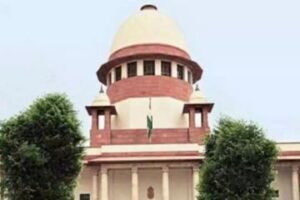Limitation Period For Filing ‘Section 11’ Application Seeking Appointment Of Arbitrator Governed By Article 137 Limitation Act: Supreme CourtSupreme Court Calls For Law To Clarify Validity Of ‘Ipso Facto’ Contractual Clauses In Relation To Insolvency
Case: Bharat Sanchar Nigam Ltd. vs. Nortel Networks India Pvt. Ltd.
Coram: Justices Indu Malhotra and Ajay Rastogi
Case No: [CA 843-844 OF 2021]
Case Observation: “Given the vacuum in the law to provide a period of limitation under Section 11 of the Arbitration and Conciliation 1996, the Courts have taken recourse to the position that the limitation period would be governed by Article 137, which provides a period of 3 years from the date when the right to apply accrues.”
“The 1996 Act has been amended twice over in 2015 and 2019, to provide for further time limits to ensure that the arbitration proceedings are conducted and concluded expeditiously. Section 29A mandates that the arbitral tribunal will conclude the proceedings within a period of 18 months.
In view of the legislative intent, the period of 3 years for filing an application under Section 11 would run contrary to the scheme of the Act. It would be necessary for Parliament to effect an amendment to Section 11, prescribing a specific period of limitation within which a party may move the court for making an application for appointment of the arbitration under Section 11 of the 1996 Act.”, the bench said.
“While exercising jurisdiction under Section 11 as the judicial forum, the court may exercise the prima facie test to screen and knockdown ex facie meritless, frivolous, and dishonest litigation. Limited jurisdiction of the Courts would ensure expeditious and efficient disposal at the referral stage.
At the referral stage, the Court can interfere “only” when it is “manifest” that the claims are ex facie time-barred and dead, or there is no subsisting dispute..
…It is only in the very limited category of cases, where there is not even a vestige of doubt that the claim is ex facie time-barred, or that the dispute is non-arbitrable, that the court may decline to make the reference. However, if there is even the slightest doubt, the rule is to refer the disputes to arbitration, otherwise, it would encroach upon what is essentially a matter to be determined by the tribunal.”
[doc id=4012]
Previous Posts
No Allegation That Promise To Marry Was False At The Inception: Supreme Court Quashes Rape Case
Appeal Against Environmental Clearance Granted to Vishakapatnam Greenfield International Airport Restored By Supreme Court Before NGT Download Judgement




